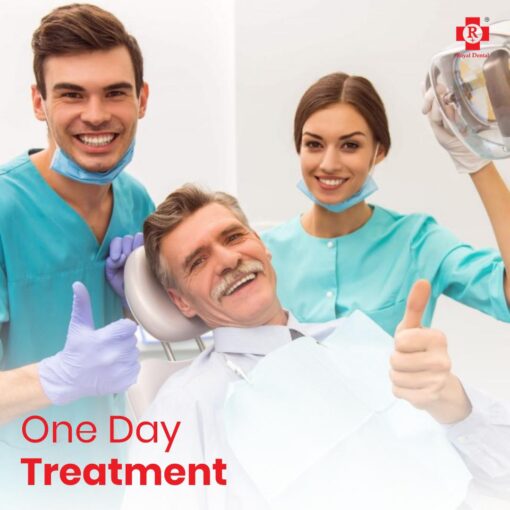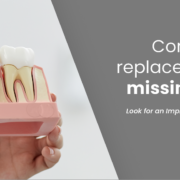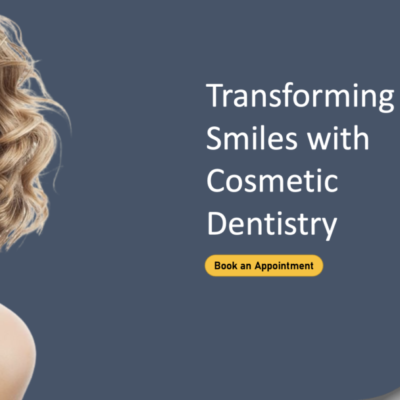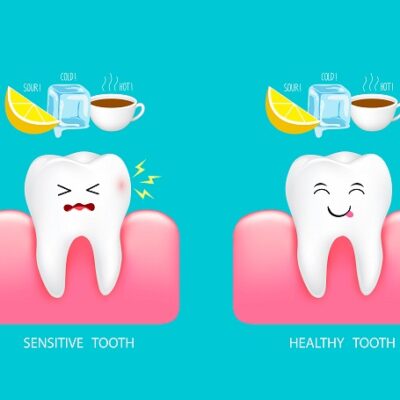Dental problems are very common nowadays. Despite all the care, people are prone to dental issues. These problems can be tooth decay, cavities, tooth loss, etc. There are various treatments available for dental problems. Most of them are dentures bridges or crowns as the final restoration. One of the best treatments is getting a dental crown for a smile beautification or makeover.
Dental crowns, also known as caps, are protective coverings placed over damaged or weakened teeth. While they offer numerous benefits, including restoring function and enhancing appearance, sometimes they can cause dental crown pain. If you’re experiencing discomfort after getting a dental crown, understanding the potential causes and available remedies can be helpful.
Dental Crowns: Things you must know about!
Dental crowns are tooth-shaped caps cemented onto a natural tooth to restore its function and appearance. They offer numerous benefits but require understanding some key aspects before you consider getting one. Here are some crucial things you should know about dental crowns:
Reasons for Getting a Crown:
- Repairing a damaged tooth: Crowns protect teeth weakened by decay, fractures, or large fillings.
- Restoring worn-down teeth: Crowns can restore teeth worn down by excessive brushing, grinding, or acid erosion.
- Improving appearance: Crowns can enhance the appearance of discolored or misshapen teeth.
- Supporting a dental bridge: Crowns can anchor a dental bridge to replace missing teeth.
Types of Dental Crowns:
- Metal crowns: Strong and durable but may not be aesthetically pleasing.
- Porcelain-fused-to-metal (PFM) crowns: Offer a natural appearance but are less durable than metal crowns.
- All-ceramic crowns: Highly aesthetic but can be more expensive and prone to chipping.
- Zirconia crowns: Strong, durable, and aesthetically pleasing but are the most expensive option.
Causes of Pain after Dental Crown or Bridge

- Improper Fit: An ill-fitting crown can put pressure on the underlying tooth and surrounding tissues, leading to pain. This can occur due to errors during the impression process or changes in the tooth structure after placement.
- High Bite: A crown that is too high can cause pain when you bite down, as it can put excessive pressure on the opposing tooth.
- Irritated Pulp: The procedure of preparing the tooth for the crown can irritate the dental pulp, the soft tissue inside the tooth containing nerves and blood vessels. This can cause sensitivity and pain, especially to hot and cold.
- Gum Inflammation: The fitting of a crown can sometimes irritate the gums surrounding the tooth, leading to pain and discomfort.
- Allergic Reaction: In rare cases, individuals may develop an allergic reaction to the materials used in the crown, such as the metal alloy or the cementing agent. This can manifest as pain, swelling, and redness.
- Underlying Dental Issues: Sometimes, pre-existing dental problems like tooth decay, gum disease, or infection beneath the crown can cause pain.
Secondary Decay or Infection Pain After a Dental Crown
Fixed bridges last anywhere between 10-15 years depending upon the oral hygiene and medical conditions. After this time the bridge can become loose due to cement cracks, improper oral hygiene, and food lodging. This causes food lodgment between gums and crowns leading to decay, infection, or gingival recession. If the teeth are not root canal treated, it will cause pain and sensitivity. And even if the tooth root canal is treated, gum pain will persist due to infection.
Relief from pain on crown due to secondary decay: Antibiotics, analgesics, removal of old bridge/crowns, deep scaling, root canal of untreated teeth, and replacement with new bridges & crowns.


Pain due to Improper Bite after Dental Crown
While fixing a fixed prosthesis bite adjustment is done to align the artificial teeth in occlusion in harmony with the existing natural teeth, surrounding musculature, and temporomandibular joint. If the prosthetic teeth do not occlude properly the bite changes resulting in jaw pain, headaches, and pressure on opposing teeth leading to bone loss in the future.
Relief from pain on crown due to improper bite: NSAIDs, muscle relaxants, occlusal reduction for elimination of high points.
Biting on Hard Objects with the Dental Crown
Patients can inadvertently bite on hard objects resulting in a fracture of the crown or tooth underneath the crowns. This may cause mild pain or sensitivity.
Relief from pain on crown due to hard biting: Veneers/ composite, post, and core, replacement of bridge or crown, extraction, and implants. SAPTeeth polymers for peek framework and HIPC crowns are wonderful alternatives.
Implant Retained Bridge
As the inferior alveolar nerve approaches the mental foramen it gives off a branch named mental nerve. The mental nerve can course straight, vertically, or in an anterior loop fashion. The prevalence of anterior loops is around 28%. Hence, Trauma to this region can sensory disturbance, increased bleeding, and pain post-implant therapy.
Cure for Implant retained bridge: Variations of mental nerve anatomy should kept in mind before implant placement.
Pain from Peri-mucositis and Peri-implantitis
Inflammation of peri-implant tissue is one of the most common complications. In conclusion, excess of cement around the peri implant tissue, trauma from occlusion improper oral hygiene can lead to pain and or infection of gums around the implant and infection around the implant itself.
Cure for pain after dental crown: Antibiotics, antiseptics, NSAIDs, deep scaling, regenerative surgeries.
Active Fit & Over Extended Margin of Dental Crown
The crowns should fit passively and there should not be any over-extension of the margin. Sometimes due to gum swelling the margins may not be clearly visible. Hence, after a period of 1-2 weeks, a follow-up appointment may be required.
In conclusion, there are many reasons a patient can have pain after a fixed dental prosthesis. Hence pain should evaluated by the dentist to restore the function and esthetics of fixed prosthesis.
Relieving Pain After Dental Crown
- Over-the-counter pain relievers: Medications like ibuprofen or acetaminophen can help manage mild pain.
- Cold compress: Applying a cold compress to the affected area for 15-20 minutes can help reduce inflammation and discomfort.
- Saltwater rinses: Rinsing your mouth with warm salt water several times a day can help clean the area and reduce irritation.
- Soft foods: Eating soft foods and avoiding hard or chewy items can minimize pressure on the crowned tooth and provide relief.
- Dental Consultation: If the pain persists for more than a few days or is severe, it’s crucial to consult your dentist. They will diagnose the cause of the pain and recommend appropriate treatment.
Relieving Dental Crown Pain:
Follow Us For More Updates






One of the best treatments is getting a dental crown for a smile beautification or makeover. thanks you for share these problems